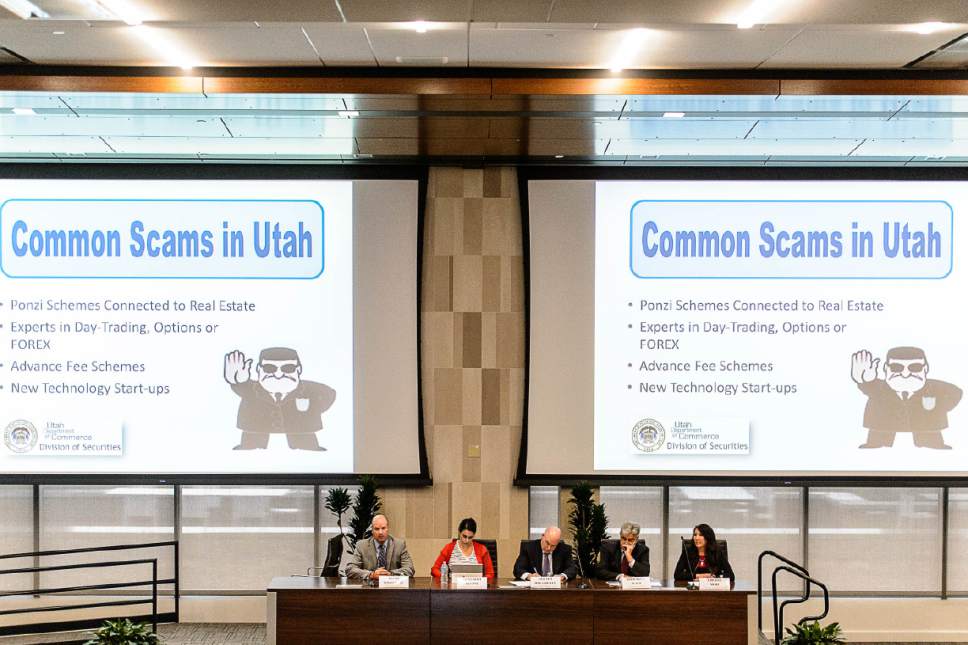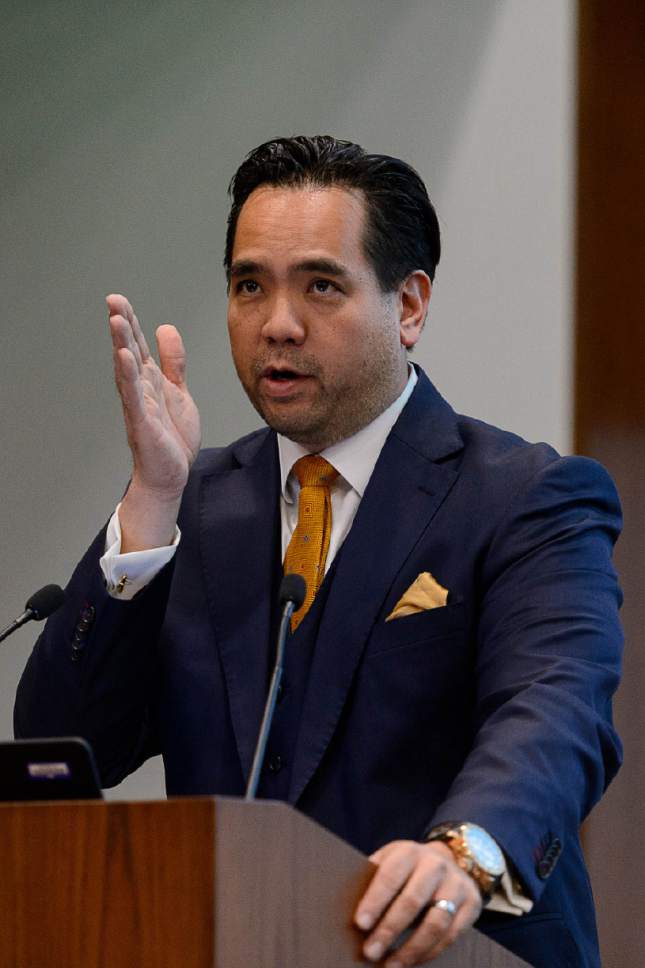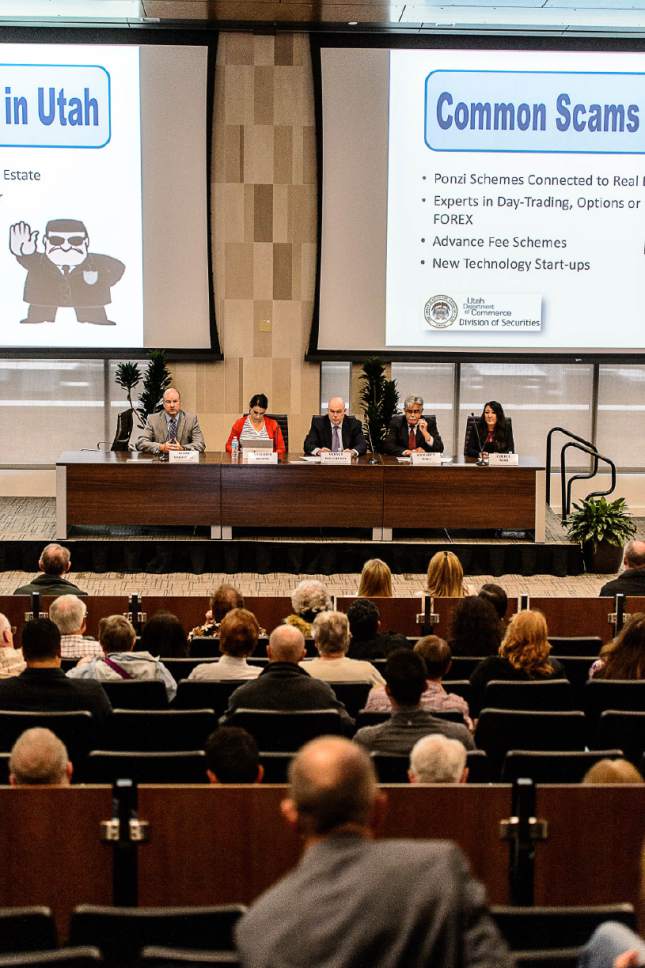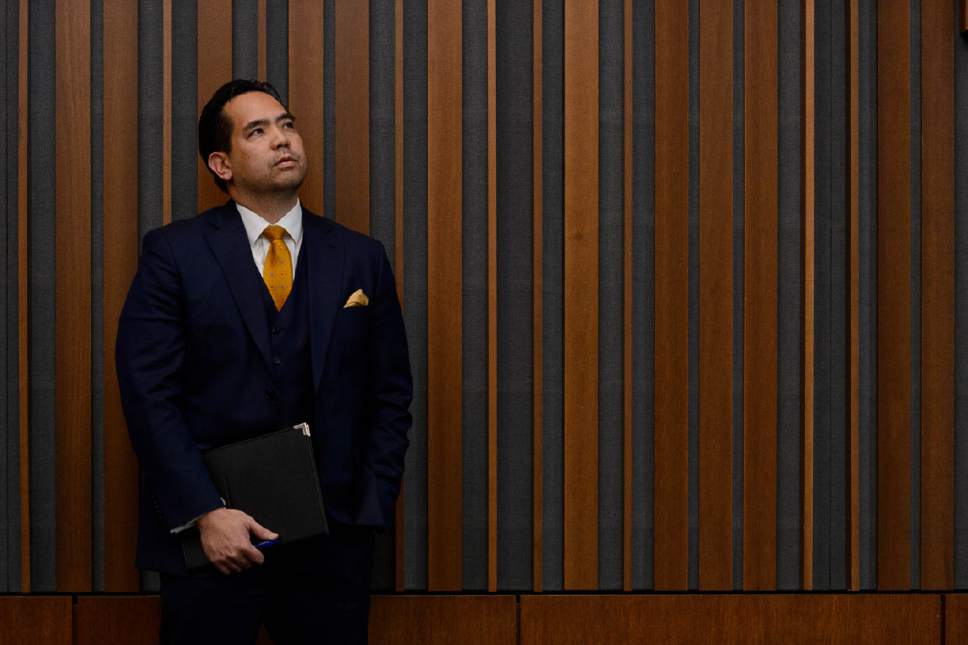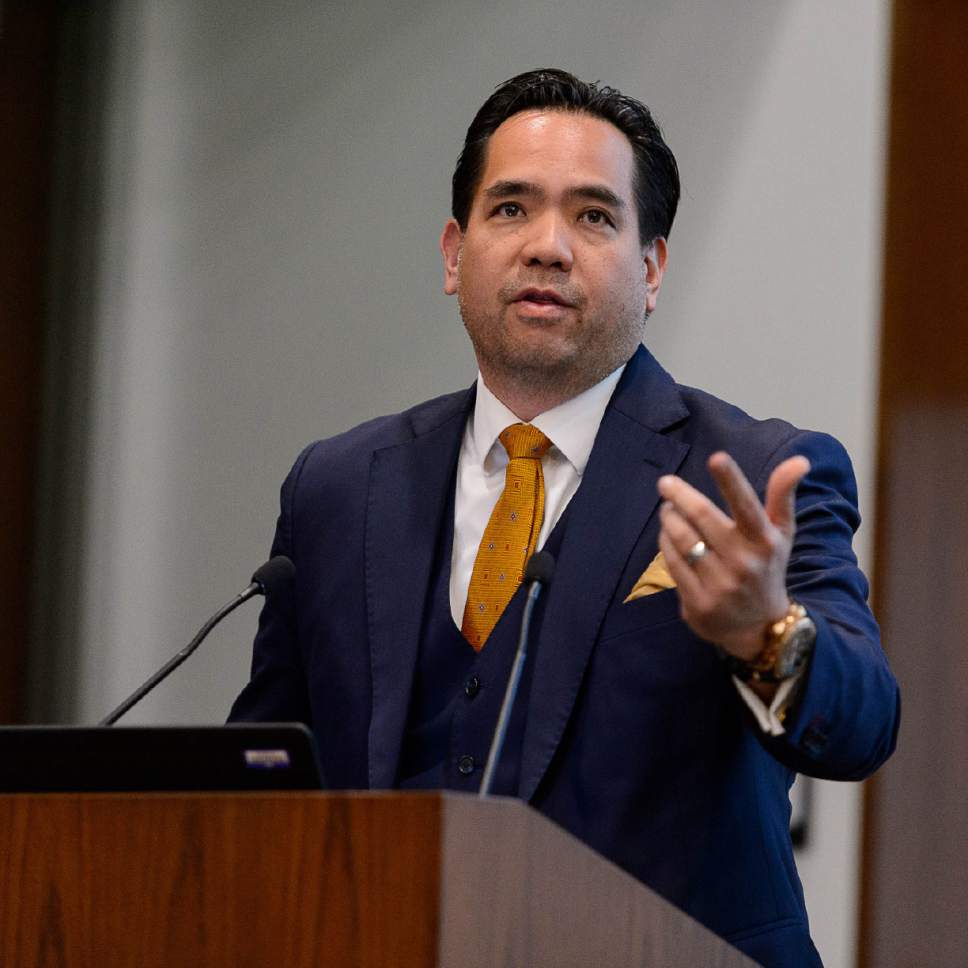This is an archived article that was published on sltrib.com in 2017, and information in the article may be outdated. It is provided only for personal research purposes and may not be reprinted.
If your cash has become OPM, then it's already MIA and almost certain to stay that way.
Scammers rely on it — other people's money — and when you turn it over to them, it's likely missing in action and never to be seen again.
That was one of the messages Wednesday night as state and federal agencies attempted to give Utahns tools and a skeptical approach to investing that could help them avoid being scammed.
Utah is prime hunting ground for those looking to fleece others — it's in the top three states per capita for fraud, according to FBI statistics.
The newly formed Financial Fraud Institute — a coalition of regulatory and law enforcement agencies — held its first seminar at the University of Utah law school Wednesday to spread the word on how to avoid being fleeced.
"How much do victims get back of the money that's taken from them?" asked Utah Attorney General Sean Reyes, the keynote speaker at the first of two such gatherings. "Sadly, almost nothing, almost never."
Reyes said financial fraud costs Utah millions of dollars.
"Hundreds of millions of dollars are sidelined and don't even come into the state for investment because of a reputation or because of a prevalence of fraud that we have," he said.
Federal prosecutor Stewart Walz, a veteran of handling white-collar crime in the state, told participants that law enforcers can go after scammers after money has been lost, but they can't, for the most part, prevent fraud.
"Only the investor that doesn't give money to the crook can actually prevent fraud," Walz said to a crowd of about 120 people.
Meredith Regine of the Commodities Futures Trading Commission provided a profile of who are the likeliest victims of investment fraud. They are married males between 50 and 65 years of age who research investment opportunities.
"There's also certain things about you that make you more prone to falling for a scheme," she said. "One of those is belonging to a religious or professional group."
Indeed, Utah suffers from a high rate of affinity fraud, characterized by a bond of trust between fraudster and victim, a phenomenon prevalent in the state's predominant Mormon population.
Keith Woodwell, director of the Utah Division of Securities, said common fraud traps in Utah include Ponzi schemes tied to real estate deals; those pushing supertrading programs for stocks or foreign currency; advance-fee schemes, like the woman who claimed that she had $50 billion tied up in Lativa and only needed money to pay fees to get it released and pay huge returns for investor moneys; and new technology startups offering the opportunity to get in on the ground floor.
"So if they're doing cold fusion in the basement or they have a special machine where you pour in sand and gold comes out the other end, that's not true," Woodwell said.
"Red flags" was the phrase of the day, and those warning signs include:
• The tried and true; if it sounds too good to be true, it is.
• The higher the promised return, the greater the risk; there's no such thing as no risk when investing.
• Guaranteed high returns and personal guarantees against loss.
Read your own emotions, speakers told the crowd. Decisions based on greed or fear of losing out or feeling rushed can lead to mistakes.
State and federal agencies — including the U.S. Securities and Exchange Commission, the Commodities Future Trading Commission, the Financial Regulatory Authority and the Utah Division of Securities — maintain tips and databases of information on investments and people offering them. Those tips can be accessed by phone or the agencies' websites. (See box.)
The next seminar is scheduled for May 10 in Orem at Utah Valley University Classroom Building Rooms
1O1B and 1O1C from 5 p.m. to 8:30 p.m. More information about the seminars is available at utfraud.com or by calling 801-579-6191.
Anti-fraud resources
U.S. Securities and Exchange Commission • sec.gov, 800-732-0330
Commodities Future Trading Commission • cftc.gov, 866-366-2382
Financial Regulatory Authority • finra.org, 301-590-6500
Utah Division of Securities • securities.utah.gov, 800-721-7233


